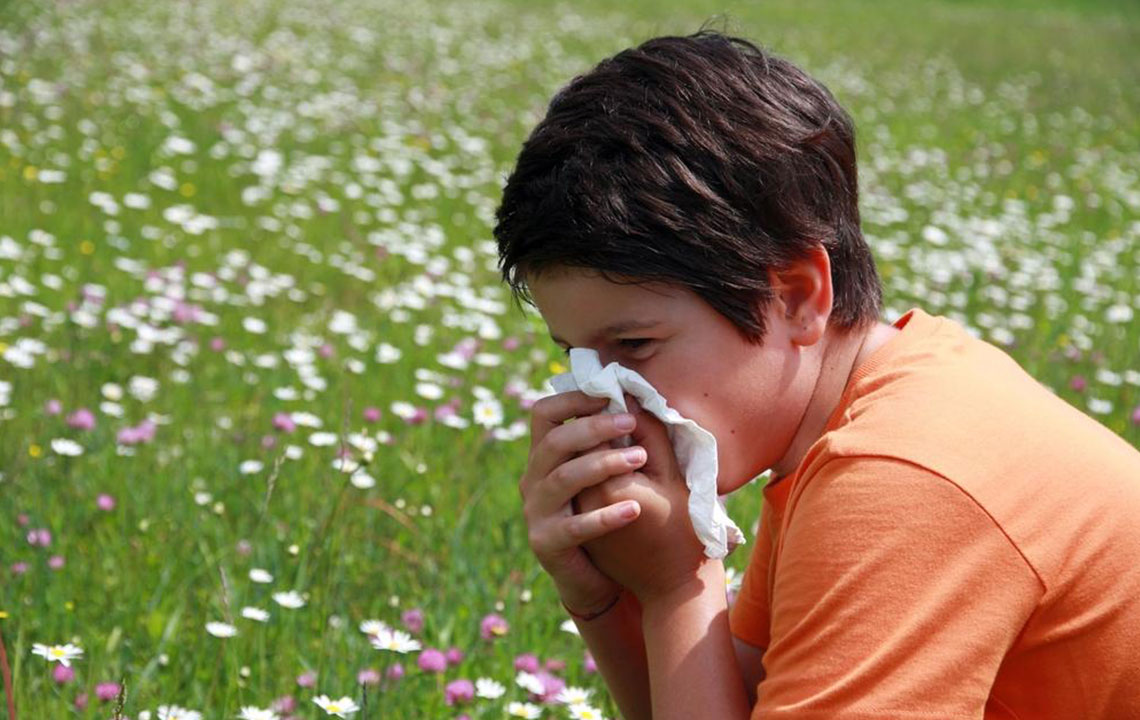Comprehensive Guide to Common Allergies and Effective Management Techniques
This comprehensive article explores common allergies, including dust, pollen, insect bites, food allergies, and pet sensitivities. It discusses symptoms, identification, and effective management strategies such as avoidance, medication, and immunotherapy. By understanding these allergy types and taking proactive steps, individuals can reduce symptoms and improve their quality of life. The guide emphasizes the importance of timely medical diagnosis, personalized treatment plans, and lifestyle changes to control allergy reactions and prevent serious health risks.

Understanding Common Allergies and How to Manage Them Effectively
Allergies are a widespread health concern affecting millions worldwide. They can manifest in various forms, depending on the individual’s environment, genetics, and lifestyle. While some allergies are mild and manageable, others can lead to severe health complications if not properly addressed. This comprehensive guide aims to shed light on the most common types of allergies, their causes, symptoms, and the best strategies for managing them effectively. By understanding these allergy types, individuals can take proactive steps to minimize exposure and seek appropriate treatment when needed.
Allergy management begins with accurate identification. Recognizing the specific allergen responsible for symptoms allows for targeted intervention, which can significantly improve quality of life. From environmental allergens like dust and pollen to food and pet-related triggers, each allergy requires specific strategies for control and treatment. Additionally, advancements in allergy diagnosis and treatment options have made it easier than ever to manage symptoms and prevent serious health issues.
Common Allergy Types and How to Recognize Them
Understanding the diverse range of allergies can help individuals identify their symptoms and seek appropriate healthcare guidance. Here’s an overview of the most prevalent allergy types:
Dust and Pollen Allergies: These are among the most common allergies, especially prevalent during seasons with high pollen counts or in dusty environments. People affected often experience sneezing, nasal congestion, itchy eyes, skin rashes, and coughing. Children are particularly susceptible. Managing such allergies involves reducing exposure—keeping indoor air clean, using air purifiers, and avoiding outdoor activities during peak pollen times. Home remedies like steam inhalation and honey might provide some relief, but persistent symptoms may require antihistamines or nasal sprays prescribed by a healthcare professional.
Insect-Related Allergies: Reactions caused by insect bites or stings are common and can range from mild skin rashes to severe swelling. People with insect allergies often develop localized swelling, redness, and itching at bite sites. In some cases, bites can trigger systemic allergic reactions like anaphylaxis. Immediate treatment involves cleaning the wound and applying antihistamines or topical corticosteroids. Severe cases may require emergency interventions such as epinephrine injections. Preventing insect bites by wearing protective clothing and avoiding areas with high insect activity is crucial for those with known sensitivities.
Food Allergies: Foods like dairy, nuts, shellfish, and certain grains are common triggers. Symptoms can include skin rashes, swelling, stomach cramps, vomiting, and even throat irritation or difficulty breathing in severe cases. Accurate diagnosis often involves allergy testing conducted by an allergist or healthcare provider. Managing food allergies necessitates strict avoidance and reading food labels carefully. Carrying emergency medication such as epinephrine auto-injectors is vital for individuals at risk of severe reactions. Educating oneself on allergen sources and having an allergy action plan can significantly reduce health risks.
Pet Allergies: Many individuals with sensitive immune systems experience allergic reactions to pet dander, fur, or saliva. Symptoms include sneezing, nasal congestion, itchy eyes, and skin rashes. Managing pet allergies involves minimizing contact with animals, using HEPA air filters, regular cleaning, and taking allergy medications like antihistamines or nasal sprays. Some individuals choose allergen immunotherapy (allergy shots) as a long-term solution. Limiting pet access to certain areas, especially bedrooms, can also help reduce symptoms. Proper hygiene and frequent cleaning of pet environments are essential for allergic individuals.
While these are some of the most common allergy types, others like mold allergies, medication sensitivities, and contact dermatitis also exist. It's important to note that untreated allergies not only cause discomfort but can also lead to secondary infections or more serious health conditions. Recognizing the signs early and seeking medical advice ensures effective management and prevents potential complications.
Effective Strategies for Managing and Treating Allergies
Proper management of allergies involves a combination of lifestyle modifications, medical treatments, and preventive measures. Here are some proven strategies to help control allergy symptoms and improve daily life:
Avoidance of Allergens: The first step in allergy management is minimizing exposure. This includes keeping living spaces clean, using allergen-proof bedding, wearing protective clothing outdoors, and avoiding known triggers during high pollen seasons. Regular cleaning to remove dust, mold, and pet dander helps reduce allergen load in the environment. Installing HEPA filters in air conditioning and heating systems can significantly improve indoor air quality.
Medications: Over-the-counter antihistamines, decongestants, and nasal corticosteroids are common treatments to alleviate allergy symptoms. For severe allergies or persistent symptoms, a healthcare professional may prescribe stronger medications or recommend allergy immunotherapy. Allergy shots gradually desensitize the immune system to specific allergens, providing long-term relief for certain individuals.
Home Remedies: Simple home remedies like steam inhalation, saline nasal sprays, and honey consumption can provide temporary symptom relief. Maintaining good nasal hygiene and staying well-hydrated also supports respiratory health.
Emergency Action Plans: For individuals with severe allergies, carrying emergency medications such as epinephrine auto-injectors and understanding how to use them is critical. Having an allergy action plan, which includes recognizing early symptoms of anaphylaxis and seeking immediate medical help, can be lifesaving.
Long-Term Management: For persistent allergies, consulting an allergist for testing and personalized treatment plans is recommended. Immunotherapy options like allergy shots or tablets can help build tolerance over time, reducing reliance on medications.
In addition to these measures, individuals should educate themselves continuously about allergy triggers and management techniques. Regular check-ups with healthcare providers ensure that treatment plans remain effective and adapt to any changes in condition.
In conclusion, understanding the diverse types of allergies, recognizing symptoms early, and applying effective management strategies can significantly enhance quality of life. Whether through avoidance, medication, or immunotherapy, controlling allergies is achievable with proper medical guidance and lifestyle adjustments. Staying informed and prepared is the key to living comfortably despite allergy challenges.





